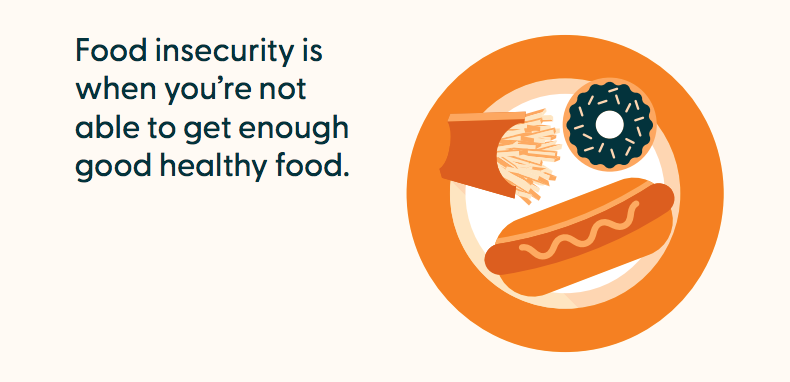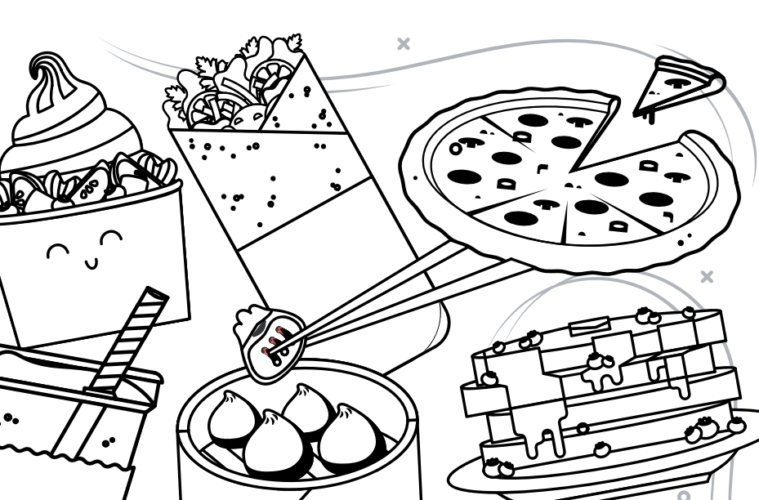Each year millions of children and youth around the world experience some type of food insecurity, in Canada it is one in five children. Food insecurity is the denied access to sufficient, affordable and nutritious food, and this isn’t just a third-world issue, it is an issue in every country.

Mealshare and SkipTheDishes are teaming up to educate about food insecurity and are participating in combatting the issue and providing meals to youth in Canada. May 28th is World Hunger Day, a day to acknowledge and educate about hunger, food insecurity and health. Food for Thought is a campaign that SkipTheDishes and Mealshare are joining forces on that will provide food and educate parents, teachers and youth about food insecurity.
This campaign is designed as both fun and educational. Talking to kids about their favourite foods, where they come from, and what would happen if they didn’t have them is a simple way to educate them about food insecurity. With the educations comes the fun. Kids can help provide meals to food-insecure youth by doing activities. Many of these activities include drawing pictures, writing stories and many more.
Each time someone submits an activity to the Food for Thought campaign SkipTheDishes will donate 5 meals to a local children’s charity that is in participation with Mealshare. As this campaign started on May 3rd SkipTheDishes kick-started it with a $25,000 donation.
Mealshare has started to share resources with schools and teachers across Canada to help educate students and children, for more information on how to educate yourself and your children, you can access it through the Mealshare website.

HOLR sat down with Derek Juno, Executive Vice President from Mealshare to learn more.
Food insecurity is known to many 1st world countries as a 3rd world country problem,
how do you educate people to know that food insecurity is a worldwide issue?
Food insecurity is certainly a problem right here at home, and in most countries around the world. To feel out the situation here in Canada, you can review the reports that the government releases every few years – the Canadian Community Health Survey. Food Banks Canada frequently releases a report – the list goes on. But beyond that, talk to any educator you know and they’ll tell you about kids who come to school hungry and/or with no lunch packed. Canada’s one of the only top developed countries without a national school feeding program (we are the only G7 nation that doesn’t have one). Food insecurity exists anywhere that funds are tight and families have to make heartbreaking choices between eating and other bills at times. Unfortunately, it’s food vs. electricity, or food vs. rent, for many families each month.
For our organization, we try to use social media and campaigns like Food For Thought to inform our community and the general public. Most people are very surprised when they hear that nearly 1 in 5 Canadian youth are food insecure.
How can we help spread awareness to kids who can’t speak up for themselves, or who do
not understand the situation they or their friends are in?
We think a huge opportunity is reducing the stigma around hunger and helping kids (and adults) understand how this issue exists, how common it is, and how we can help. That’s why we’re so excited to provide some basic tools to teachers across the country here and see what successes we can have this spring. We need to keep the conversation up, raise the priority of the issue with the government, and continue to improve conditions for families so that no Canadian youth goes hungry.
Food insecurity goes beyond whether or not someone can provide food for someone else,
it also is about how the economic impact on how food is produced affects those who buy
food, how are you educating youth about that side of food insecurity?
We are really proud that we try and work with solution-based charities as much as possible. These organizations don’t just provide meals but they have programs that focus on so much more. Cooking classes, counselling, job training, homework help, computer literacy, etc. Charities like these that are in food deserts are especially important because they can empower youth to shop effectively, cook innovatively, and they are usually the catalyst behind gardening or vegetable box programs, which can be essential for young people growing up in communities with not many options for fruits and vegetables.
The partnership between SkipTheDishes and Mealshare is to educate and provide, what
has the impact been since this partnership started?
So far, we’ve reached out to 8,000+ schools across the country and heard great responses from our nation’s teachers. Skip also kicked off the partnership with a generous $25,000 donation, which is so huge for our non-profit, especially coming out of a very challenging last year. We’re off to a great start!




